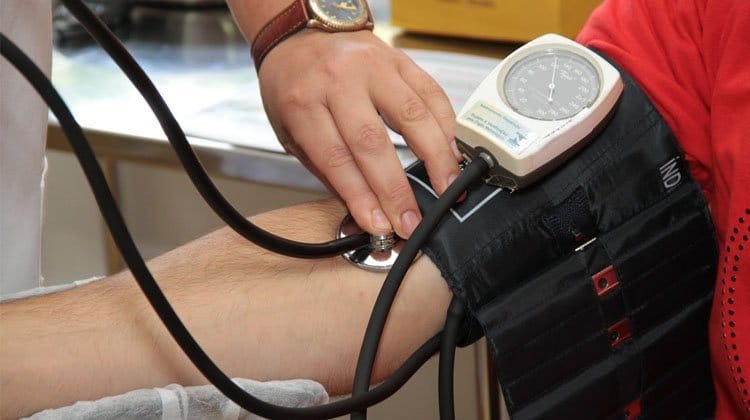For many patients, the need for in-home health care typically follows a trip to the hospital, a traumatic injury, or a decline in an existing condition. Combine that vulnerable position with new treatment plans and agreeing to let complete strangers come in to aid with the care of a loved one, and anyone could easily become overwhelmed.
Home health may involve nurses coming by weekly (or more frequently) to track vitals, symptoms, and assist with treatment, as well as physical, occupational, or speech therapists. Understanding the nature of home health and how you, family members and caregivers, can make the most of every visit could benefit your loved one significantly. Here are 5 smart yet simple ideas for enhancing your loved one’s access to home health:

Regularly Log Vitals
The work done by family and caregivers in between home health visits plays a crucial role in maintaining a comprehensive log of your loved one’s well being, symptoms, and progress. Important tools to have in your own home include a pulse oximeter (to measure pulse and blood oxygen saturation levels), a pressure device (to track regular blood pressure readings), and a thermometer to measure temperatures and log any fevers.
A daily written record of your loved one’s vitals, preferably taken at the same time each day helps provide a baseline of “normal” for their overall condition, which is helpful for a home health nurse, for example, who wants to know if a low blood pressure reading is alarming or par for the course for your loved one. Logging vital signs in addition to changes in mood, appetite, pain levels, toileting, and other symptoms helps answer questions home health nurses who only come once or twice a week may have. It also paints a larger picture of your loved one’s overall health and allows you the opportunity to flip back to specific days to site certain events or symptoms that may help lead to better treatment for their condition.
Ask About Resources
It can be an overwhelming and tiring task for your loved one (and you) to make it to various appointments, tests, and screenings, especially if they are disabled or do not do well with the stimulation of busy waiting rooms and fluorescent lights. Did you know home health agencies can literally be your loved one’s ticket to staying out of the hospital?
By closely monitoring vitals and symptoms, when something of concern arises, family members and caregivers can utilize home health for in-home blood, urine and fecal tests, to order mobile x-ray screenings, and more. You might not know what is available to your loved one as far as in-home treatment and testing is concerned until you ask – it never hurts to ask!
Now this isn’t to say that you shouldn’t seek immediate medical attention at a hospital if the urgent need arises, but if vitals are stable and you can work with your loved one’s home health agency quickly, than you may save a copious trip and even get them treatment faster.
Be Communicative About Needs & Expectations
You rarely have to stay on top of a really good home health agency, however, every now and and then a detail will slip by or an appointment will be missed. Whether it’s with your case manager or the home health worker themselves, set clear expectations and communicate regularly regarding your loved one’s care – this may include placing phone calls or even texting with your home health nurse.
Getting the most out of home health means taking control of your loved one’s condition, their care, and any health needs they may have. This might include reminding a home health nurse that additional wound care supplies are needed for dressing a bedsore, or communicating clearly with their visit your concerns about recent symptoms and tests you would like done to track down a potential issue like an infection. With the assistance of an attentive family doctor or specialist who goes about writing the actual orders for home health to complete (i.e. blood test or urinalysis), your loved one’s care becomes the product of multiple parties cohesively working together. Family members and caregivers are typically the ones who hold it together, and clear communication is the glue.
Monitor for Neglect & Abuse
While most home care workers (not nurses, but private duty caregivers) are friendly, hard working, and honest people, you still hear stories about neglect, deception, abuse, and fraud. Oftentimes, families are in such dire need of help, they snap up the first home care worker who fits the bill, naive to the realities of background checks and speaking with former clients and references. The people requiring the hands on care are typically the most vulnerable, elderly or disabled, and might not be able to communicate or understand neglect, theft, or abuse that is happening.
What can patients and their families do? Once you have hired someone, have family members make unexpected visits while the home care worker is in as well as monitor their loved one’s financials closely to track money spent and any money missing. Make sure the agency you go through does quality assurance checks, surveys, and status updates as well to evaluate performance of the homecare worker.
Say Thank You
Let your home health aide or nurse know how much you appreciate them by saying thank you! While it is “their job” technically, treating you (or your loved one) with care and respect should never go unthanked. Ask your home health worker when their birthday is and what holidays they celebrate. A simple handwritten card or home baked cookies are a sweet gesture that can go a long way towards brightening the day of your loved one’s home health visitor.

